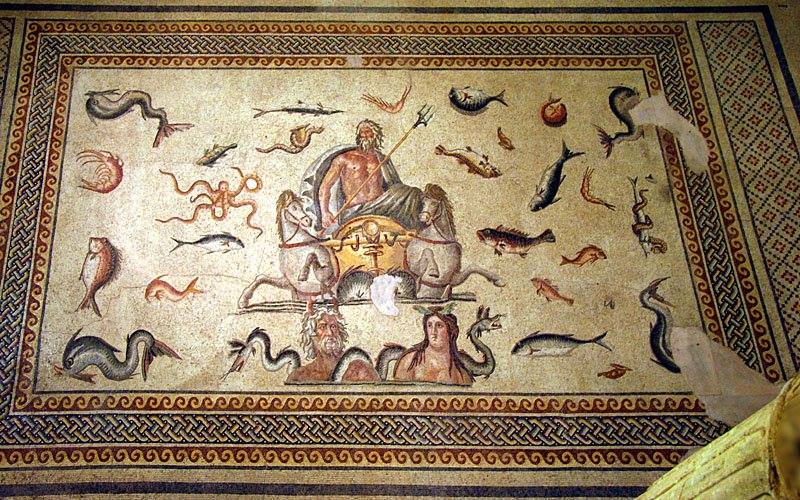Horace Odes Book II:XIX (Latin Text and notes here)
To Bacchus
I saw Bacchus on distant cliffs - believe me,
O posterity - he was teaching songs there,
and the Nymphs were learning them, and all
the goat-footed Satyrs with pointed ears.
Evoe! My mind fills with fresh fear, my heart
filled with Bacchus, is troubled, and violently
rejoices. Evoe! Spare me, Liber,
dreaded for your mighty thyrsus, spare me.
It’s right to sing of the wilful Bacchantes,
the fountain of wine, and the rivers of milk,
to sing of the honey that’s welling,
and sliding down from the hollow tree-trunks:
It’s right to sing of your bride turned goddess, your
Ariadne, crowned among stars: the palace
of Pentheus, shattered in ruins,*
and the ending of Thracian Lycurgus.
You direct the streams, and the barbarous sea,
and on distant summits, you drunkenly tie
the hair of the Bistonian women,
with harmless knots made of venomous snakes.
When the impious army of Giants tried
to climb through the sky to Jupiter’s kingdom,
you hurled back Rhoetus, with the claws
and teeth of the terrifying lion.
Though you’re said to be more suited to dancing,
laughter, and games, and not equipped to suffer
the fighting, nevertheless you shared
the thick of battle as well as the peace.
Cerberus saw you, unharmed, and adorned
with your golden horn, and, stroking you gently,
with his tail, as you departed, licked
your ankles and feet with his triple tongue.
*In Euripides Bacchae, Pentheus' palace is shattered by an earthquake.

No comments:
Post a Comment